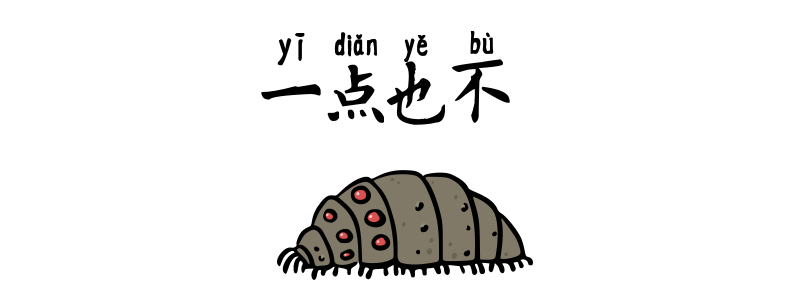Grammar Point:
一点也不 yìdiǎn yě bù is used in Chinese to emphasize complete negation or “not at all”. It expresses that there is not even a little bit of something or no degree of a particular quality, attitude, or behavior.
Structure
一点 yìdiǎn + 也 yě or 都 dōu + 不 bù + Adj
Using 一点 yìdiǎn with 也 yě or 都 dōu strengthens the negation, highlighting a “complete lack” of something. Without 一点 yìdiǎn, the negation still works but feels less emphatic. This pattern is commonly used in spoken Chinese and sounds very natural in everyday conversations.
我一點也不累我一点也不累
I’m not tired at all.
她一點都不開心她一点都不开心
She’s not happy at all.
他一點也不喜歡吃甜的東西他一点也不喜欢吃甜的东西
He doesn’t like sweets at all.
這本書一點也不好看这本书一点也不好看
This book isn’t good at all.
學中文一點都不難学中文一点都不难
Learning Chinese isn’t difficult at all.
一点 yìdiǎn + (O) + 也 yě or 都 dōu + Neg + V
老師一點英文也不會說老师一点英文也不会说
The teacher doesn’t speak any English.
弟弟一點事都沒做弟弟一点事都没做
My younger brother didn’t do anything at all.
我一點都不想去我一点都不想去
I don’t want to go at all.
你一點責任感都沒有你一点责任感都没有
You have no responsibility at all.
他一點茶也沒喝他一点茶也没喝
He didn’t drink tea at all. (Non-happening in the past)
他一點茶也不喝他一点茶也不喝
He doesn’t drink tea at all. (Refused to)


